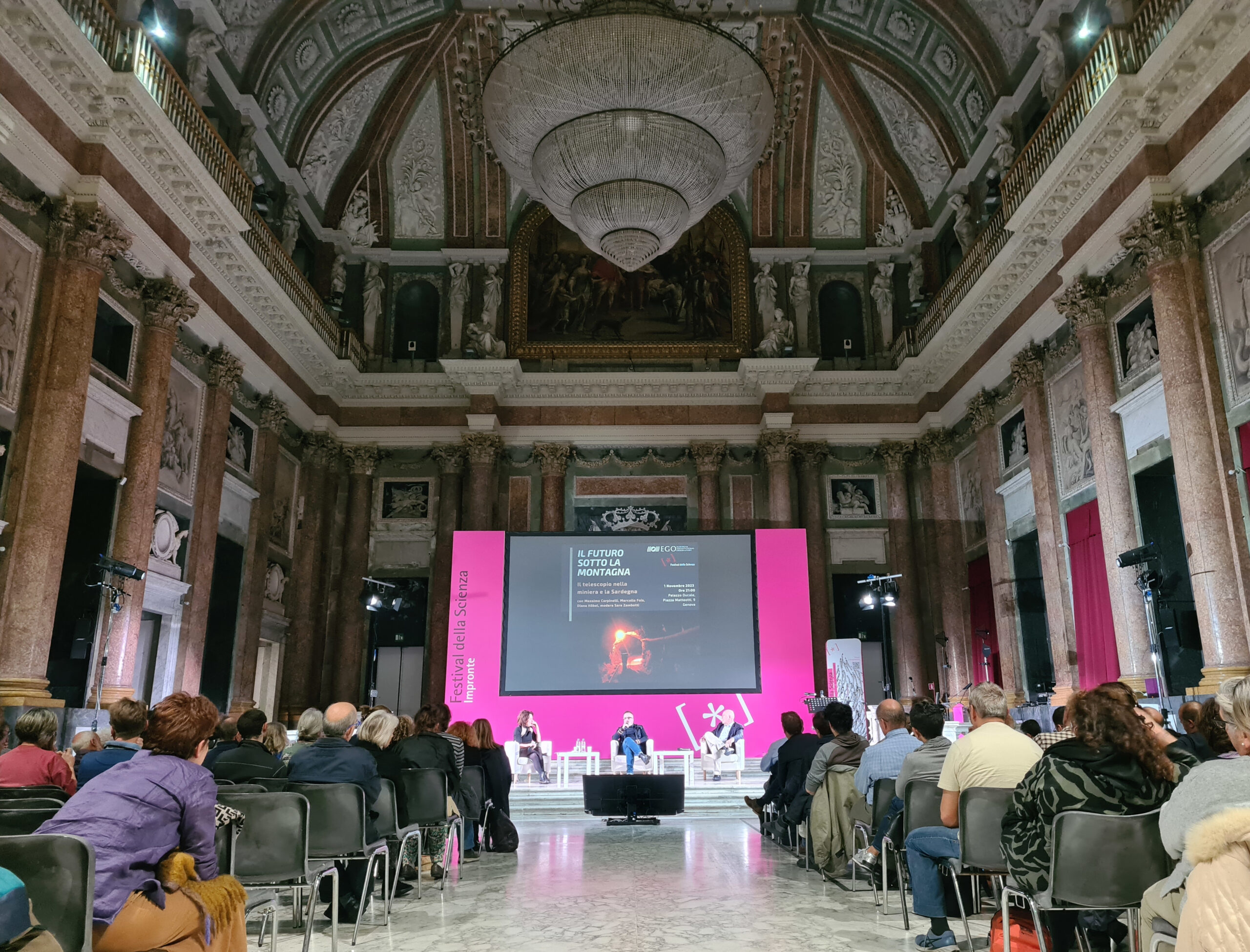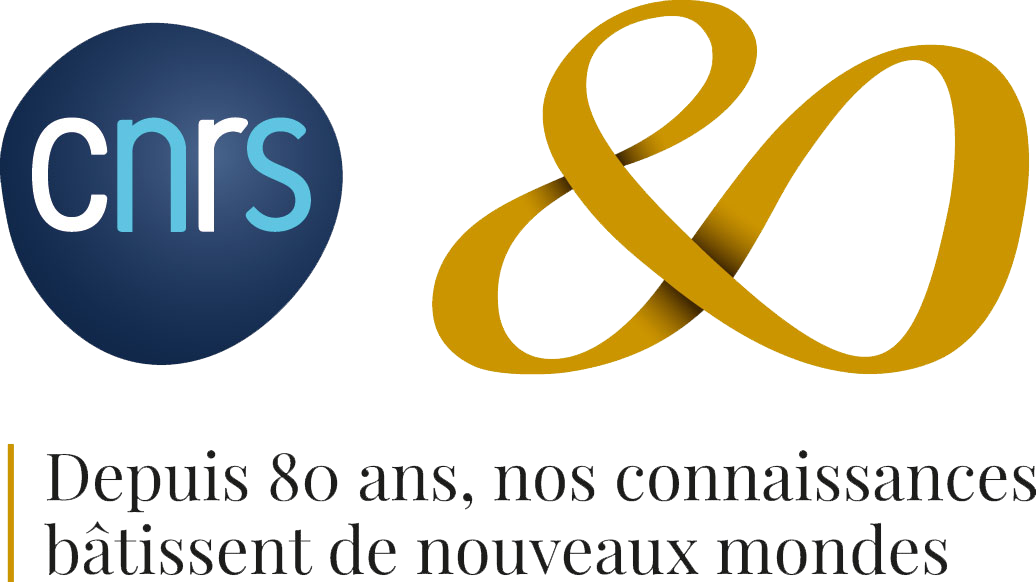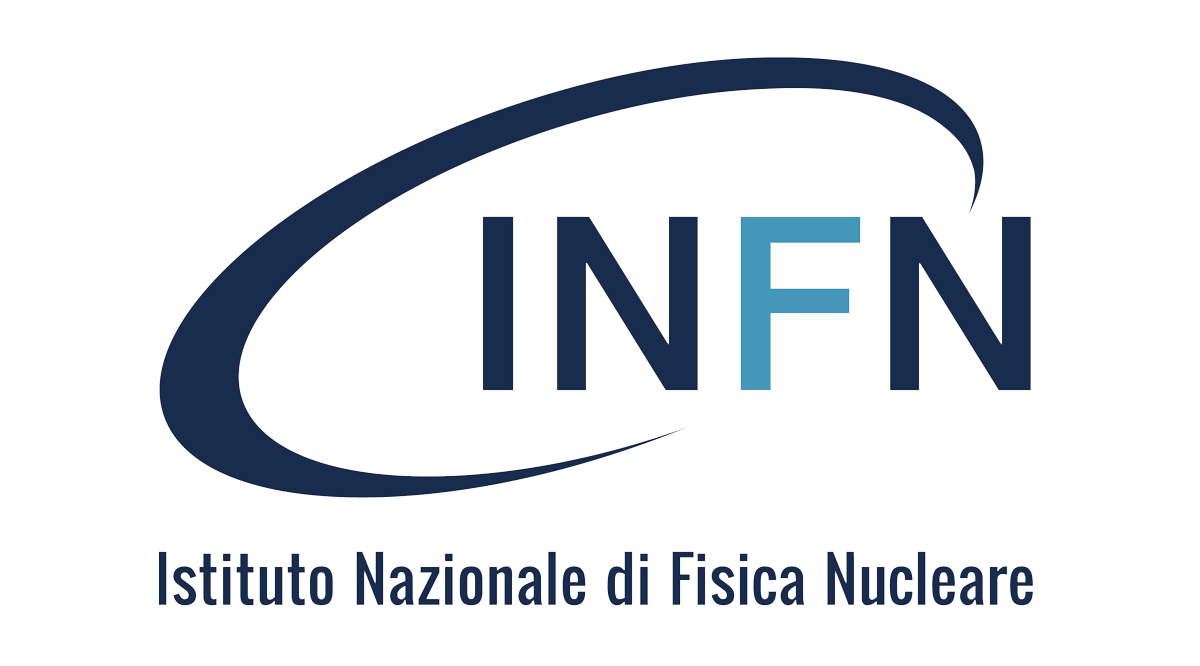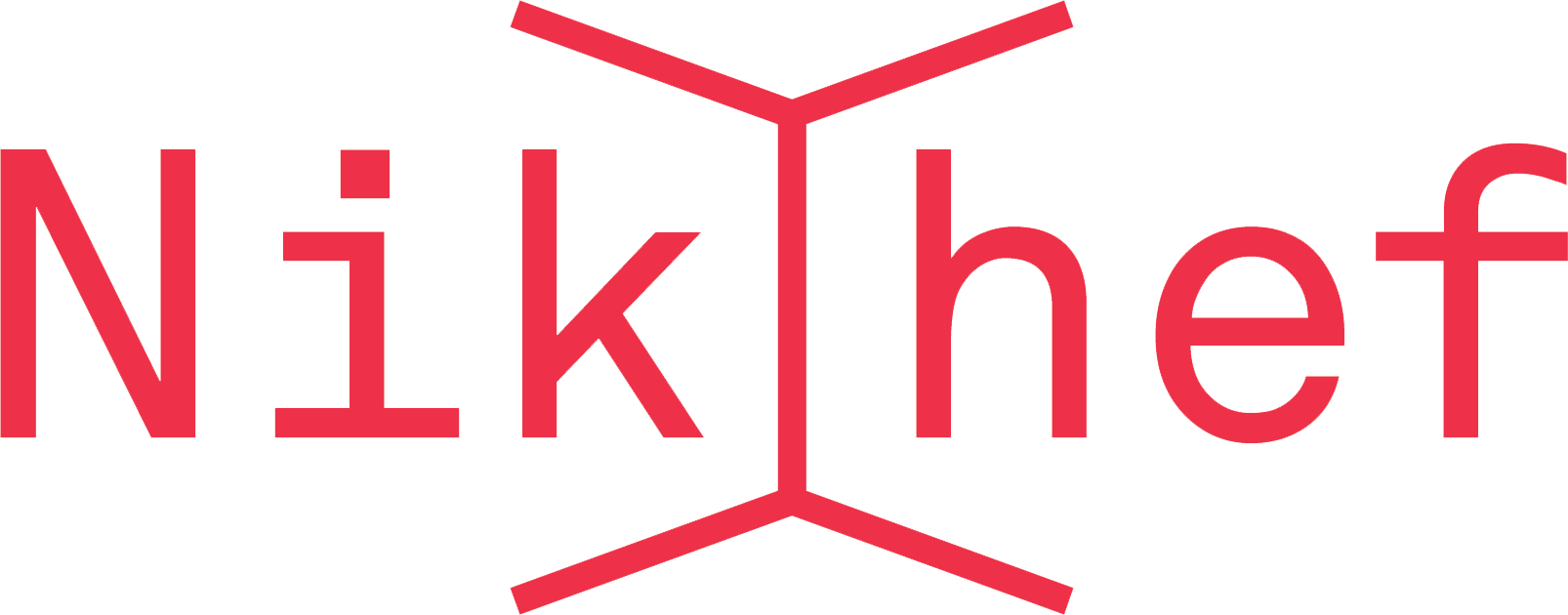The Genova Festival della Scienza, Italy’s most important science festival, starts this week. As every year, EGO and Virgo will participate with laboratories, workshops and events. Here is all the information on where to find us in Genova over the next few days!
📆 24 October to 3 November
📍 Genova, Palazzo Reale
Einstein’s challenge
In a laboratory organised by EGO and INFN Roma 1 you can put yourself in the shoes of a researcher studying gravitational waves. You will discover what a gravitational wave detector looks like, the physics behind its operation and why it is so difficult to build, thanks to 3D models and interactive programmes.
📆 October 25th – 11.00 AM
📍 Genova, Galata Museo del Mare
A story at the edge of the universe
Gravitational waves are faint deformations of space-time generated by violent cosmic events, such as the collisions of black holes and neutron stars. This landscape on the border between science and science fiction is the setting in which, with the help of a cartoonist and a researcher, you can collectively construct an adventure whose fate will be decided in minute detail by you: from the construction of the characters to the challenges they will face, not forgetting the final solution. In the company of Jacopo Sacquegno’s drawings, which will bring the story to life, with the moderation of Giada Rossi and the scientific guidance of Julia Casanueva, a researcher at Virgo, one of the world’s three gravitational wave detectors, we will explore some of the hottest scientific topics in modern astronomy and come into contact with the experiences of scientists who have dedicated their careers to the study of these fascinating topics.
https://www.festivalscienza.it/programma-2024/una-storia-ai-confini-delluniverso
📆 October 26th – 3.30 PM
📍 Genova, Palazzo Ducale, Sala del Minor Consiglio
Getting closer to the echo of the big bang
‘The craziest of undertakings’: that was how the attempt to reveal gravitational waves was described by Adalberto Giazotto, the father of the Virgo experiment, referring to the extraordinary scientific and technological challenges that had to be met. Today, following the success of that extraordinary feat in 2015, physicists design the Einstein Telescope, the largest and most sensitive gravitational antenna ever built in Europe. Annalisa Allocca (University of Naples) and Michele Maggiore (University of Geneva) will recount the challenges already won and those yet to be faced, in a dialogue enriched by Jacopo Sacquegno’s live drawings. Event organised by INFN (National Institute of Nuclear Physics) and EGO. Moderator: Edwige Pezzulli.
https://www.festivalscienza.it/programma-2024/avvicinarsi-alleco-del-big-bang
📆 26 ottobre – ore 21.00
📍 Genova, Palazzo Ducale, Sala del Maggior Consiglio
Donne in ascolto del cosmo
L’astronomia multimessaggera nasce il 17 agosto 2017, quando un evento astrofisico, la fusione di due stelle di neutroni, è osservato per la prima volta tramite molteplici messaggeri. Si tratta del coronamento di una lunga storia, cominciata più di un secolo fa, quando i fisici e gli astronomi impararono progressivamente a osservare il cosmo con nuovi telescopi in grado di captare la luce al di là dello spettro visibile: segnali radio, ultravioletti, raggi X fino ai potentissimi raggi gamma. Abbiamo anche capito che oltre alla luce vi sono anche altri, preziosi messaggeri cosmici, come le particelle generate nel cuore delle stelle o in violenti fenomeni cosmici. All’inizio del nuovo millennio, poi, la scoperta delle onde gravitazionali ci ha dotati di un nuovo ‘senso’ con cui esplorare, o forse potremmo dire, ascoltare l’Universo. Nuove conoscenze che allo stesso tempo hanno aperto anche grandi enigmi e nuove sfide, come quella di osservare e ascoltare gli eventi cosmici “all’unisono”: una sorta di check-up cosmico del cielo, con tutti gli strumenti disponibili. Pia Astone (Dirigente di Ricerca INFN e docente all’Università La Sapienza di Roma) e Silvia Piranomonte (prima ricercatrice INAF), due protagoniste di questa rivoluzione ne raccontano la storia e le sfide, accompagnate da splendide immagini e da musica direttamente ispirata all’astronomia multimessaggera, realizzata tramite la sonificazione di dati reali dal musicista Mario Salvucci. Modera l’evento, a cura di EGO con INFN e INAF, Vincenzo Napolano di EGO.
https://www.festivalscienza.it/programma-2024/donne-in-ascolto-del-cosmo
Contacts
Via E. Amaldi,5
56021 Cascina (PI) – Italy
Tel +39 050 752511
Contact us
How to reach us




